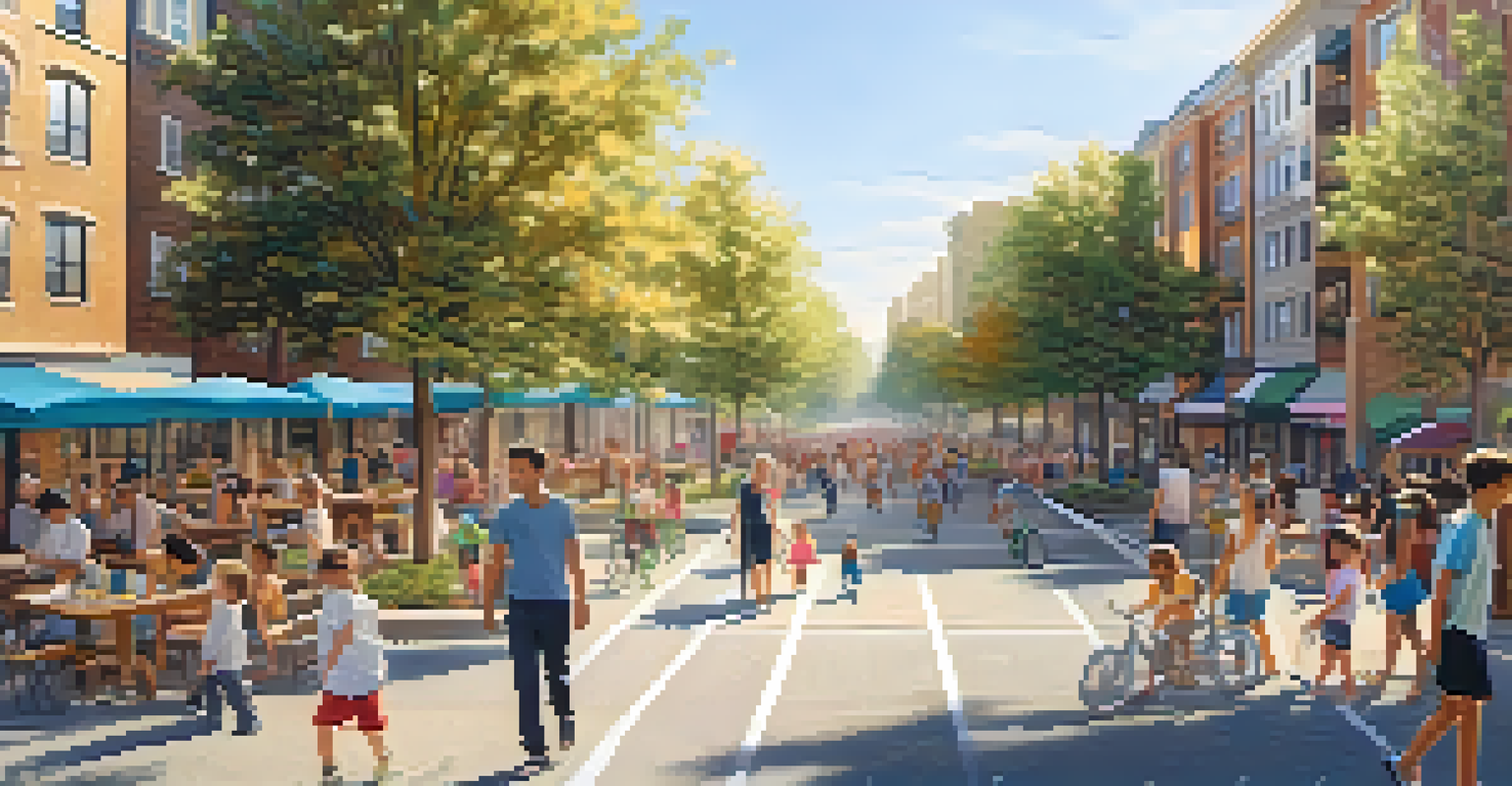Exploring How Emotions Drive Home Buying Decisions Effectively

The Powerful Role of Emotions in Home Buying
When it comes to purchasing a home, emotions often take the lead over logic. Buyers may find themselves drawn to a house not just for its features, but for the feelings it evokes. This emotional connection can stem from memories, aspirations, or even the aesthetics of the space.
The most important thing in communication is hearing what isn’t said.
For example, a family may choose a home because it feels cozy and inviting, reminiscent of their childhood. Alternatively, a young professional might be attracted to modern designs that represent their aspirations for success. These emotional ties can heavily influence the final decision.
Understanding the emotional drivers at play can help real estate agents and sellers better connect with potential buyers. By tapping into these feelings, they can create a more compelling narrative around a property, making it easier for buyers to envision their future there.
Identifying Emotional Triggers in Home Buyers
Emotional triggers are specific feelings that can sway a buyer's decision. These can range from nostalgia and security to excitement and ambition. Recognizing these triggers can help in tailoring the home-buying experience.

For instance, a home with a large backyard can evoke feelings of safety and space for children to play, appealing to families. On the other hand, a sleek, urban apartment might trigger excitement for young professionals looking for a vibrant lifestyle.
Emotions Drive Home Buying Choices
Emotional connections often outweigh logical considerations when buyers choose a home.
By identifying these emotional touchpoints, sellers can highlight features that resonate with potential buyers. This targeted approach creates a stronger emotional connection, increasing the chances of closing the deal.
The Impact of First Impressions on Emotional Decisions
First impressions matter, especially in real estate. The initial feeling a buyer gets when they step into a home can set the tone for their entire experience. A well-staged home that feels warm and inviting can spark positive emotions right away.
People don’t buy for logical reasons. They buy for emotional reasons.
Consider the difference between a home that's cluttered and one that's thoughtfully arranged. The latter not only looks appealing but also allows buyers to visualize their life in the space. This visualization is essential for triggering emotional responses that lead to a purchase.
By investing in staging and curb appeal, sellers can significantly enhance first impressions. Creating an environment that resonates emotionally can be the key to making a lasting impact on potential buyers.
Creating Emotional Narratives Around Properties
Every home has a story, and sharing that narrative can enhance emotional engagement. When sellers or agents frame a property within a compelling story, it helps buyers connect on a deeper level. This narrative can include the history of the home, the neighborhood, or even the lifestyle it offers.
For example, highlighting a home that has hosted family gatherings or celebrations can evoke feelings of warmth and togetherness. Buyers can imagine themselves creating similar memories, which makes the property more appealing.
First Impressions Matter
A buyer's initial feelings upon entering a home significantly influence their overall experience and decision.
By weaving emotional narratives into property descriptions and showings, sellers can create a more immersive experience. This not only captures attention but also fosters a sense of belonging that is crucial in home buying.
The Role of Community in Emotional Home Buying Decisions
The community surrounding a home plays a significant role in the emotional decision-making process. Buyers often look for neighborhoods that align with their lifestyle and values. A vibrant community can evoke feelings of belonging and connection, making it a key factor in the home-buying journey.
For instance, families may be drawn to areas with good schools and parks, while young adults might prefer neighborhoods with nightlife and social activities. These community attributes can enhance the emotional appeal of a property.
Real estate agents can leverage this by showcasing not just the home, but also the community's strengths. Highlighting local amenities, events, and the overall vibe can create a more attractive picture for potential buyers.
Navigating Fear and Anxiety in Home Buying
Fear and anxiety are common emotions in the home-buying process, often stemming from the financial commitment involved. These feelings can cloud judgment and lead buyers to hesitate or second-guess their decisions. Understanding these emotions is crucial for both buyers and agents.
For example, a buyer might worry about making a poor investment or the stress of moving. Addressing these concerns openly can help alleviate anxiety. Providing clear information and reassurance can empower buyers to make confident choices.
Community Enhances Emotional Appeal
The surrounding community plays a crucial role in shaping a buyer's emotional connection to a property.
By creating a supportive environment and fostering open communication, agents can help buyers navigate their fears. This emotional support can make a significant difference in the decision-making process, turning anxiety into confidence.
The Final Decision: Emotional vs. Rational Choices
Ultimately, the decision to buy a home often hinges on a blend of emotional and rational factors. While logical considerations like price and location are important, emotions frequently tip the scales. Buyers may rationalize their choice, but it's often the emotional connection that seals the deal.
For instance, a buyer might justify a higher price for a home they feel a strong attachment to. They may see it as a place to build memories, which outweighs the financial concerns. This illustrates how intertwined emotions and practicalities can be in the home-buying journey.

By acknowledging the emotional aspects alongside logical reasoning, buyers can make more fulfilling decisions. It's essential for both agents and buyers to recognize this balance to navigate the process effectively.